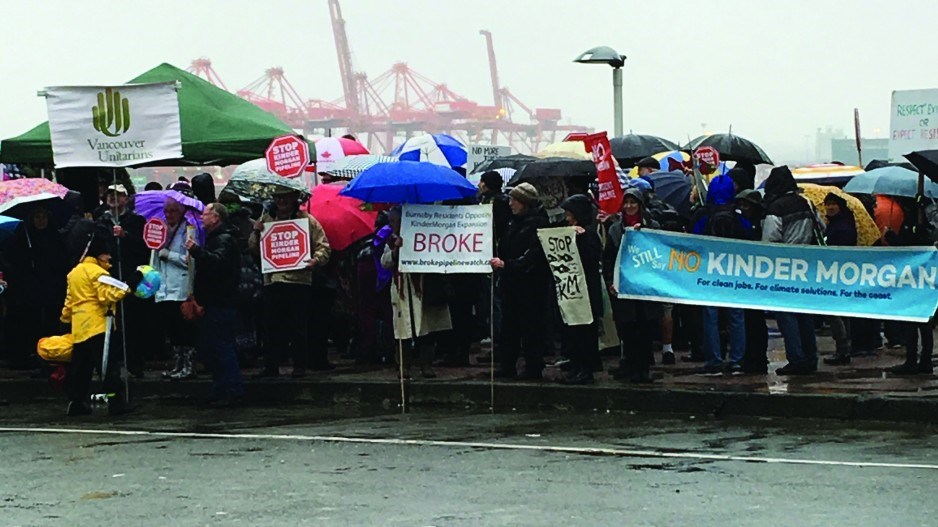The City of Vancouver and Squamish First Nation have simultaneously lost judicial review applications to the BC Supreme Court to overturn a provincial environmental certificate issued for the $7.4 billion Trans Mountain pipeline expansion project.
Both the city and Squamish sought a judicial review of the issuance of an environmental certificate by the BC ministries of Environment and Natural Gas Resources under the previous B.C. Liberal government, but for different reasons.
The Squamish argued that the provincial government failed to properly consult them in its environmental review process, which led to the issuance of an environmental certificate.
The City of Vancouver argued that the province failed to engage in “proper” public consultation.
In rejecting the applications, Justice Christopher Grauer found no procedural unfairness on the province’s part.
And even if he had, Grauer points out that the only thing that would result from that is the delay in having to go through an exercise that, ultimately, is subservient to federal law. As he points out, the province does not have the authority to refuse to issue an environmental certificate for a federally approved project. the most it can do is add some of its own conditions, which the provincial government in fact did.
“Thus, British Columbia cannot say “no” to the TMX or any fundamental part of it, but may say “yes, but with some conditions” after proper consultation,” Grauer writes.
In his written reasons for judgment, Grauer notes that the current B.C. government differs from the previous Liberal government on the Trans Mountain pipeline project, and that the question of whether the project was properly approved at the federal level is something that higher courts will decide.
“Just how far British Columbia can go within its own constitutional competence in placing limits on a federal undertaking remains to be tested,” he writes.
Several higher courts will wrestle with the question of just how much power B.C. has with respect to regulating a federally approved pipeline. The B.C. government has asked the BC Court of Appeal to determine if the province has the ability to restrict the flow of diluted bitumen from Alberta through B.C.
The B.C. government is also trying to sue Alberta through the Alberta provincial court system over Bill 12, which the Alberta government has threatened to use to throttle exports of oil and gasoline to B.C.
Essentially, the B.C. government is asking the Alberta courts for a declaration that Alberta does not have the authority to restrict oil exports, while simultaneously asking a B.C. court to give it the ability to restrict oil from Alberta transiting B.C.
And the Federal Court of Appeal is expected to make a decision soon on an appeal by five First Nations, who last year argued that the federal government failed to do the "deep" consultations required before it approved the pipeline twinning project.
Grauer noted that a higher court has yet to decide the question of whether the National Energy Board’s approval of the project was properly done.
“The sole government action at issue in this case is the decision of British Columbia to issue an EAC,” Grauer wrote.
“Should that decision be upheld, or should it be set aside and done over? In either event, the ultimate fate of the TMX will remain unaffected by this court’s conclusion. That will, and must, remain in the hands of the legislative and executive branches of government.
"What this case does concern is whether British Columbia adequately fulfilled its undoubted duty to consult Squamish in relation to its decision to issue an EAC to the project. By itself, it can have no impact on the decision of the federal government that this project shall proceed, other than delay."
Grauer concludes that “given British Columbia’s constitutional limitations, the nature of the process before the NEB and the federal cabinet, and the applicable legislation, I have concluded that the ministers’ decision to issue an EAC to the TMX fell within the range of possible, defensible outcomes.
“It therefore met the reasonableness standard I am obliged to apply, and is entitled to deference. I found no lack of procedural fairness or absence of jurisdiction.”




